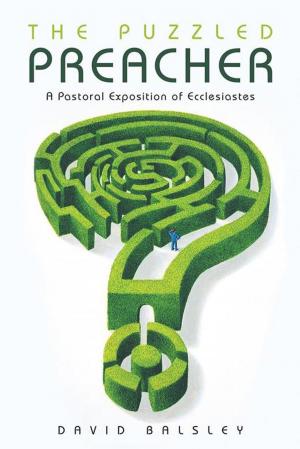| Author: | Daniel Howell | ISBN: | 9780998748160 |
| Publisher: | Blue Ridge Books | Publication: | May 1, 2017 |
| Imprint: | Blue Ridge Books | Language: | English |
| Author: | Daniel Howell |
| ISBN: | 9780998748160 |
| Publisher: | Blue Ridge Books |
| Publication: | May 1, 2017 |
| Imprint: | Blue Ridge Books |
| Language: | English |
It's often said that evolution is science and creationism is religion. Although this opinion is widely held by the public – including many religious people – it represents a misunderstanding of both creationism and evolution. In Sometimes Deceived, Liberty University professor Dr. Daniel Howell asserts that neither contention is true. Creationism is not religion and biological evolution is not science.
What then are they?
They are both myths in the literal and historical sense of the word: a creation story generally accepted as true by its adherents and which encapsulates the worldview and deepest values of those who believe. All religions have a creation myth, but until the theory of evolution came along, atheists had no origins story of their own. Prior to evolution, atheists could reject God and the traditional creation story, but they had no replacement. If God didn’t create, where did the universe come from? How did life on Earth get started? Darwin and his colleagues supplied the answer, but it was nothing less than a full-scale attack on the Judeo-Christian establishment of the Western world. By crafting a new creation myth for the atheist’s worldview, Darwin filled the proverbial vacuum that Nature so abhors, an accomplishment perhaps even bigger than just discovering the origin of biological species.
Dr. Howell explains why Darwinism is a worldview and evolution its creation myth, just as divine creation is the creation myth for the Judeo-Christian worldview. Evolution is no more a "science" than creationism is. However, both evolution and divine creation can be studied scientifically as hypotheses for human origins. When doing so, scientists must recognize the differences between empirical science and historical science. Howell provides numerous examples of Darwinists conflating these two modes of science in order to make the theory of evolution appear more robust than it actually is. He also explains the differences between conceptual facts and empirical facts and the differences between coherent truth and objective truth. Using their own arguments, Howell reveals how Darwinists have created a false narrative supported only by conceptual facts and coherent truths, a narrative inconsistent with objective reality. Howell also spends a chapter on logic and exposes invalid inferences and logical fallacies consistently employed by evolutionists.
In an Epilogue, Dr. Howell addresses the threat that Darwinism poses not only to traditional Christian religion but to the American way of life, even the liberties that we so cherish.
Sometimes Deceived lays out the logical and scientific reasons why Christians can confidently reject Darwinism and biological evolution without feeling like flat-Earthers.
It's often said that evolution is science and creationism is religion. Although this opinion is widely held by the public – including many religious people – it represents a misunderstanding of both creationism and evolution. In Sometimes Deceived, Liberty University professor Dr. Daniel Howell asserts that neither contention is true. Creationism is not religion and biological evolution is not science.
What then are they?
They are both myths in the literal and historical sense of the word: a creation story generally accepted as true by its adherents and which encapsulates the worldview and deepest values of those who believe. All religions have a creation myth, but until the theory of evolution came along, atheists had no origins story of their own. Prior to evolution, atheists could reject God and the traditional creation story, but they had no replacement. If God didn’t create, where did the universe come from? How did life on Earth get started? Darwin and his colleagues supplied the answer, but it was nothing less than a full-scale attack on the Judeo-Christian establishment of the Western world. By crafting a new creation myth for the atheist’s worldview, Darwin filled the proverbial vacuum that Nature so abhors, an accomplishment perhaps even bigger than just discovering the origin of biological species.
Dr. Howell explains why Darwinism is a worldview and evolution its creation myth, just as divine creation is the creation myth for the Judeo-Christian worldview. Evolution is no more a "science" than creationism is. However, both evolution and divine creation can be studied scientifically as hypotheses for human origins. When doing so, scientists must recognize the differences between empirical science and historical science. Howell provides numerous examples of Darwinists conflating these two modes of science in order to make the theory of evolution appear more robust than it actually is. He also explains the differences between conceptual facts and empirical facts and the differences between coherent truth and objective truth. Using their own arguments, Howell reveals how Darwinists have created a false narrative supported only by conceptual facts and coherent truths, a narrative inconsistent with objective reality. Howell also spends a chapter on logic and exposes invalid inferences and logical fallacies consistently employed by evolutionists.
In an Epilogue, Dr. Howell addresses the threat that Darwinism poses not only to traditional Christian religion but to the American way of life, even the liberties that we so cherish.
Sometimes Deceived lays out the logical and scientific reasons why Christians can confidently reject Darwinism and biological evolution without feeling like flat-Earthers.















